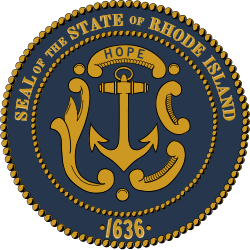| |||||||||||||||||
| |||||||||||||||||
 County results Jones: 50–60% Fenner: 50–60% | |||||||||||||||||
| |||||||||||||||||
| Elections in Rhode Island |
|---|
 |
The 1812 Rhode Island gubernatorial election was held on April 1, 1812, in order to elect the governor of Rhode Island. Incumbent Federalist governor William Jones won re-election against former Democratic-Republican governor James Fenner in a rematch of the previous election. [1]

